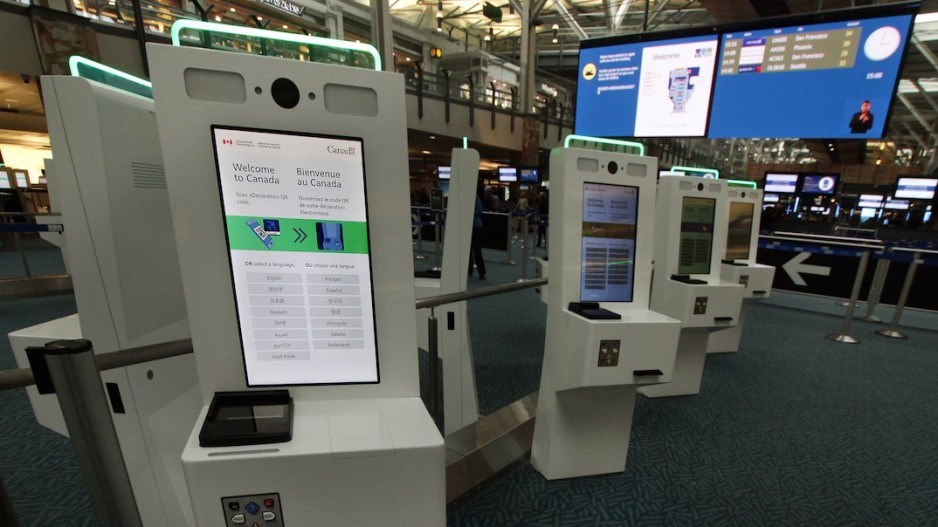Vancouver Airport Authority (VAA) last month notched a business breakthrough and what it calls a world’s first when an America Cruise Ferries operation installed two VAA-made customs kiosks aboard one of its ferries.
The kiosks enable passengers on Ferries del Caribe’s daily Dominican Republic-to-Puerto Rico route to get through customs faster, allowing them to use a touch screen to answer standard questions, such as whether they have been on a farm recently or if they are carrying more alcohol than allowed. The kiosks issue receipts for the travellers to hand to customs officers, increasing the efficiency of the process.
VAA has long relied on non-aeronautical revenue to ensure that its Vancouver International Airport (YVR) can run profitably.
Together with money generated from parking, concessions and space rentals – not to mention the VAA’s biggest source of revenue, the airport improvement fee – non-aeronautical revenue far surpasses income from landing and terminal fees and has helped generate a revenue surplus at the airport.
In 2016, the most recent year for which information is available, the VAA generated $85.1 million in profit on $490.5 million in revenue. That money is reinvested in operations.
One rising source of VAA’s revenue is its lesser-known Innovative Travel Solutions division, which makes the kiosks.
VAA employees develop software for the kiosks, which are fabricated at Surrey’s Crosstown Metal Industries.
The 30-employee department within VAA has produced more than 1,400 kiosks since it launched in 2009, including those installed in the arrival hall at YVR.
Innovative Travel Solutions’ director, Chris Gilliland, declined to discuss how much his division generates annually or the price range for the kiosks.
“It’s commercially sensitive,” he told Business in Vancouver. “We’re competing with tenders and competitors around the world.”
Major competitors include the multinational information technology giant SITA, which has a 50-employee office in Burnaby where staff make software for airlines, and Embross.
Embross, which has made more than 23,000 kiosks for airlines and airports around the world, primarily makes kiosks for self check-in but it also has what it calls automated passport control.
Dean Bouchard, Halifax Stanfield International Airport’s director of planning and infrastructure, told BIV that his airport bought 24 kiosks from VAA last fall as a cost-saving measure because it was less expensive than expanding the airport’s arrival hall.
“They’ve been well received by the travelling public, and they’re working well for the customs agents,” he said.
Innovative Travel Solutions has far more kiosks in airports (37) than it has at seaports (one at the Port of Vancouver and one at Port Everglades in Fort Lauderdale) but it is the seaport and cruise ship sector that has Gilliland excited.
“This is a very important pilot program for us to be successful on because now we have cruise lines looking at this on a much larger scale,” he said. “They can actually turn the ship around quicker because you’re disembarking all the passengers off much quicker, so it gives the crew more time to reprovision, clean the cruise ship and get out early if possible.”
Making further inroads in the cruise sector, however, may be an uphill climb.
“The turnaround isn’t so much of a worry because you still need everybody off by the same time, so disembarkation is going to be at the same time whether or not somebody is standing in a customs line at the port or they’re on board,” said Morningstar analyst Jaime Katz, who covers Royal Caribbean Cruises Ltd. (NYSE:RCL). “They still have to get off the ship at the same time.”
Royal Caribbean has a smartphone app that allows passengers to scan their passport bar code and tick boxes related to customs entry, she said.
Holland America Line said it has looked into the possibility of using kiosks on its vessels. The company, however, “determined it is not the most effective process at this time. There is also newer mobile technology available for the same purpose.” •




